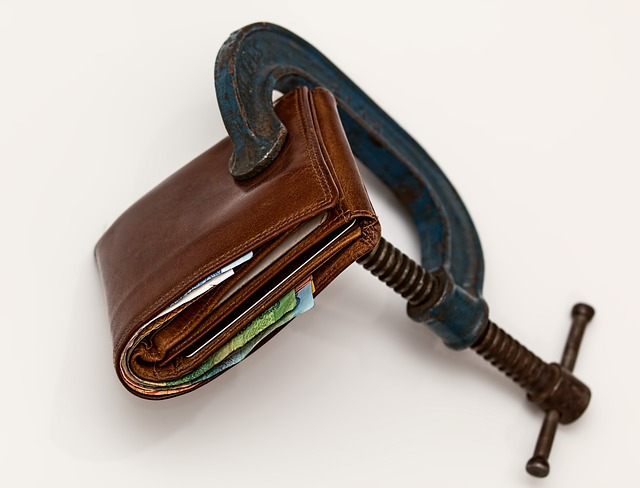How Debt Consolidation Works for South African Consumers
Debt consolidation offers South African consumers a strategic approach to managing multiple debts by combining them into a single loan or payment plan. This financial solution can potentially simplify monthly payments, lower interest rates, and provide a clearer path toward becoming debt-free. As many South Africans struggle with multiple credit accounts, store cards, and loans, understanding how debt consolidation works becomes increasingly important for those seeking financial relief and stability.

What is debt consolidation and how does it work?
Debt consolidation in South Africa involves combining multiple debts into a single loan or credit facility. The process typically starts with taking out a new loan to pay off existing debts, leaving you with one monthly payment instead of several. When you consolidate your debts, you essentially transfer what you owe from various creditors to a single lender, often with better terms.
The consolidation loan proceeds are used to settle your outstanding accounts, which might include personal loans, credit cards, store accounts, and other forms of credit. After consolidation, you’ll make regular payments to just one lender according to the new agreement’s terms. This streamlined approach means fewer payment dates to remember and potentially a lower overall interest rate, depending on your credit profile and the consolidation option you choose.
Common types of debts that can be consolidated in South Africa
Several types of debt can be effectively consolidated in South Africa, with the most common being credit card balances. These often carry high interest rates (up to 27.5% per annum) and can quickly accumulate due to minimum payment structures. Personal loans from banks and micro-lenders also frequently form part of consolidation packages.
Store cards and retail accounts, which many South Africans use for purchasing clothing, furniture, and appliances, typically carry high interest rates and can be included in consolidation plans. Vehicle finance, though sometimes consolidated, may have implications for the vehicle’s ownership status. Some South Africans also consolidate overdrafts and short-term loans, which often come with substantial fees and interest rates.
Home loan refinancing represents another consolidation option, where existing debts are rolled into a new or refinanced mortgage. This approach typically offers lower interest rates but extends the repayment period and puts your property at risk if you default.
Benefits and potential risks of consolidating debt
The benefits of debt consolidation include simplified financial management through a single monthly payment instead of juggling multiple due dates and creditors. Many borrowers secure lower interest rates through consolidation, especially when combining high-interest debts like credit cards and store accounts. This can significantly reduce the total amount repaid over time.
A structured repayment plan provides clarity on when you’ll become debt-free, while potentially improving your credit score by reducing the number of open accounts and establishing a consistent payment history. Some consolidation options may also offer lower monthly payments, improving short-term cash flow.
However, debt consolidation isn’t without risks. Extended repayment terms, while lowering monthly payments, can increase the total interest paid over time. Some consolidation loans require collateral (such as your home), which you could lose if you default. Additionally, consolidation doesn’t address underlying spending habits, and without behavioral changes, many consumers find themselves accumulating new debt alongside their consolidation loan.
Certain consolidation options may also include hidden fees, prepayment penalties, or variable interest rates that could increase over time. It’s also worth noting that debt consolidation might temporarily lower your credit score due to credit inquiries and opening a new account.
Things to consider before choosing a debt consolidation option
Before pursuing debt consolidation, honestly assess your financial situation, including total debt, interest rates, and your ability to make consistent payments. Compare the total cost of your current debts against consolidation options, considering both monthly payments and the total amount repaid over the full term.
Investigate various consolidation methods, including personal loans, home loan refinancing, balance transfers, and debt management plans through debt counselors. Read the fine print carefully, noting any fees, penalties, or variable interest rate conditions that might apply to your consolidation agreement.
Consider your credit score’s impact, as qualifying for favorable consolidation terms typically requires a reasonable credit history. Having a solid plan to prevent future debt accumulation is essential—consolidation provides a fresh start, but without changed financial habits, you may find yourself in a worse position.
Where to find information about regulated providers in South Africa
The National Credit Regulator (NCR) is South Africa’s primary authority for overseeing credit providers, debt counselors, and credit bureaus. Their website (www.ncr.org.za) offers a register of legitimate providers, regulatory guidelines, and educational resources about debt management.
Financial institutions regulated by the South African Reserve Bank and the Financial Sector Conduct Authority (FSCA) generally offer more reliable debt consolidation products. Major banks like Standard Bank, ABSA, Nedbank, and FNB provide consolidation loans with transparent terms and regulatory compliance.
Registered debt counselors, listed on the NCR website, can provide personalized advice and formal debt review services. Industry associations like the Banking Association South Africa (BASA) maintain standards for their members and can guide consumers toward reputable services.
Comparison of debt consolidation options in South Africa
| Consolidation Option | Typical Interest Rate | Best For | Potential Risks |
|---|---|---|---|
| Personal Loan | 15-25% | Smaller debt amounts, consumers with good credit | Higher rates than secured loans |
| Home Loan Refinancing | 8-13% | Homeowners with significant equity | Putting property at risk, extended repayment periods |
| Credit Card Balance Transfer | 0-20% | Short-term relief for credit card debt | Temporary low rates that increase after promotion |
| Debt Review | Negotiated rates | Those struggling with payments | Credit restrictions during review process |
| Bank Consolidation Loans | 13-20% | Existing bank customers with good standing | May require closing other accounts |
| Pension-backed Loans | 10-15% | Employed individuals with pension funds | Risking retirement savings |
Prices, rates, or cost estimates mentioned in this article are based on the latest available information but may change over time. Independent research is advised before making financial decisions.
Debt consolidation provides South African consumers with options to simplify debt repayment and potentially reduce costs, but it requires careful consideration. By understanding how consolidation works, evaluating the types of debt that can be consolidated, weighing benefits against risks, and choosing a reputable provider, South Africans can make informed decisions about managing their debt more effectively. Remember that while consolidation can provide relief, addressing spending habits remains crucial for long-term financial health.




